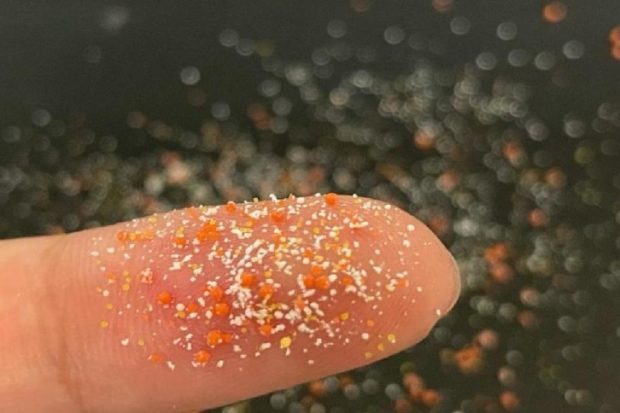
Microplastics in sewage become ‘hubs’ for drug-resistant bacteria reports study
PTI, Mar 26, 2021, 6:12 PM IST

New York: Ultra-fine plastic particles can become ‘hubs’ for antibiotic-resistant bacteria and pathogens to grow once they wash down household drains and enter wastewater treatment plants, a new study says.
According to the scientists, including those from the New Jersey Institute of Technology (NJIT) in the US, these plastic particles less than five millimetres in length, called microplastics, allow the formation of a slimy layer, or biofilm, on their surface which allows bacteria and antibiotic waste to attach and mingle.
The research, published in the Journal of Hazardous Materials Letters, noted that certain strains of bacteria have elevated antibiotic resistance by up to 30 times when living on microplastic biofilms that form inside sludge units at municipal wastewater treatment plants.
”Several recent studies have focused on the negative impacts that millions of tons of microplastic waste a year is having on our freshwater and ocean environments, but until now the role of microplastics in our towns’ and cities’ wastewater treatment processes has largely been unknown,” said study co-author Mengyan Li from NJIT.
”These wastewater treatment plants can be hotspots where various chemicals, antibiotic-resistant bacteria, and pathogens converge and what our study shows is that microplastics can serve as their carriers, posing imminent risks to aquatic biota and human health if they bypass the water treatment process,” Li said.
In the study, the scientists assessed batches of sludge samples from three domestic wastewater treatment plants in New Jersey, US, inoculating the samples in the lab with two widespread commercial microplastics – polyethylene and polystyrene.
They then identified the species of bacteria that tend to grow on the microplastics, tracking genetic changes of the bacteria along the way.
The researchers found that three genes in particular – sul1, sul2, and intI1 – known to aid resistance to common antibiotics, sulfonamides, were found to be up to 30 times greater on the microplastic biofilms than in the lab’s control tests using sand biofilms after just three days.
When the scientists added the antibiotic, sulfamethoxazole, to these samples they found it further amplified the antibiotic resistance genes by up to 4.5-fold.
”Previously, we thought the presence of antibiotics would be necessary to enhance antibiotic-resistance genes in these microplastic-associated bacteria, but it seems microplastics can naturally allow for uptake of these resistance genes on their own,” said Dung Ngoc Pham, another co-author of the study from NJIT.
”The presence of antibiotics does have a significant multiplier effect, however,” Pham said.
Of the eight different bacterial species that the scientists found growing on the microplastics, they found two emerging human pathogens typically linked with a respiratory infection.
”We might think of microplastics as tiny beads, but they provide an enormous surface area for microbes to reside,” Li said.
According to the researchers, when microplastics enter the wastewater treatment plant and mix in with sludge, bacteria can accidentally attach to the surface and secrete glue-like substances.
”As other bacteria attach to the surface and grow, they can even swap DNA with each other. This is how the antibiotic resistance genes are being spread among the community,” Li explained.
The scientists said further studies are needed to better understand the extent to which such pathogen-carrying microplastics may be bypassing water treatment processes.
Udayavani is now on Telegram. Click here to join our channel and stay updated with the latest news.
Top News

Related Articles More

‘Life sprouts in space’, says ISRO after cowpea seeds germinate under microgravity conditions

AI tools like GPT-4 do not fare well in ‘conversing’ with patients, study finds

Andhra Pradesh-based start-up tests ultra-high-frequency communication tech on ISRO’s POEM-4

New Year’s greetings with an artificial but intelligent twist

Space docking experiment: Spacecraft injected into right orbit, ISRO eyes another tech feat
MUST WATCH
Latest Additions

TN CM announces USD 1 million prize for decoding Indus valley script

PM assures no welfare scheme to be stopped if BJP forms govt in Delhi, says AAP has no vision

Siddaramaiah urges youth to stay away from divisive forces misusing religion, caste

Kasaragod: Fire breaks out at plywood mill in Battipadavu

Ramesh Bidhuri expresses regret as row erupts over his ‘roads like Priyanka Gandhi’s cheeks’ remarks
Thanks for visiting Udayavani
You seem to have an Ad Blocker on.
To continue reading, please turn it off or whitelist Udayavani.



















